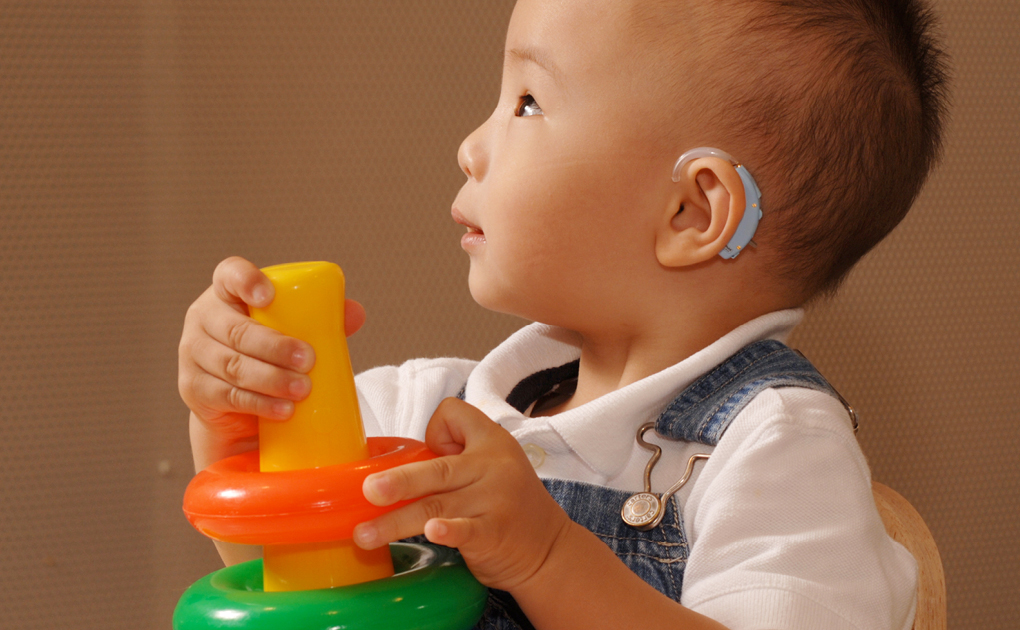
Hearing loss can cause long-lasting problems for young children. Children with hearing loss can have trouble learning speech and language, doing well in school, or getting along with other children. Early identification of hearing loss can prevent some of these difficulties.
When might a child develop hearing loss?
A child may be born with a hearing loss or a hearing loss might develop some time after birth. These losses may be temporary or permanent.
A child might have a hearing loss if…
- he or she does not speak as much or as clearly as other children of the same age.
- he or she has a syndrome that is connected with hearing loss.
- he or she was born prematurely or had to stay overnight in the hospital because of some type of sickness.
Hearing loss might lead a child to…
- be impulsive or do things without thinking.
- have a hard time paying attention.
- daydream often.
- have difficulty with following directions.
- play alone often.
- become frustrated easily.
What should I do if I think a child has a hearing loss?
- Talk to the child’s family about why you have concerns.
- Give information about Tennessee’s Early Intervention System to the child’s family.
- Give information about the Vanderbilt Bill Wilkerson Center to the child’s family.
What should I do for a child with a hearing loss?
Make the room quieter:
- Move the child farther from noise (e.g., heating and cooling systems, hallways, playground noise).
- Put tennis balls on the feet of chairs.
- Put carpet on the floor.
- Add or close curtains.
- Put corkboards or cardboard egg cartons on walls.
Make it easier for the child to hear you:
- Sit or stand close to the child when talking to him or her.
- Make sure the child is looking at you when you talk.
- Speak clearly but do not shout.
- Look at the child while you are talking and do not cover your mouth.
- If the child does not understand what you say, try saying it again with different words. For example: Change “Please clean up,” to “Please put your crayons away.”
- Use objects or pictures to help the child know what you are going to talk about. For example: Point out your snack area before you say, “We have a special surprise for snack today.”
‣ VKC Resources
‣ Local and National Resources
- American Speech-Language-Hearing Association (ASHA)
- Boys Town National Research Hospital – Genetics and deafness
- Laurent Clerc National Deaf Education Center
- National Institute on Deafness and Other Communication Disorders (NIDCD)
- Tennessee’s Early Intervention System (TEIS)
- Vanderbilt Bill Wilkerson Center
[November 2013]